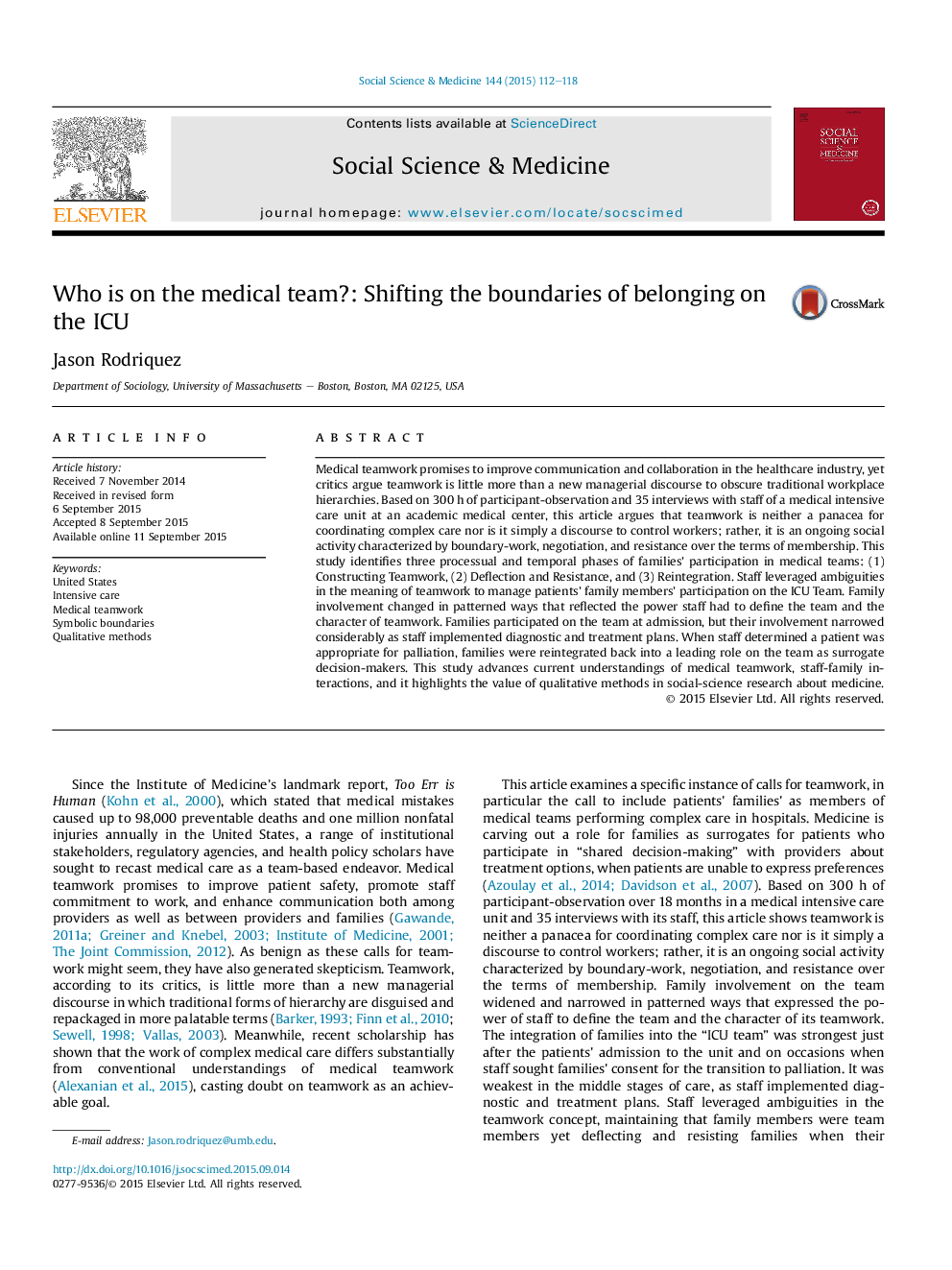| کد مقاله | کد نشریه | سال انتشار | مقاله انگلیسی | نسخه تمام متن |
|---|---|---|---|---|
| 952239 | 1476025 | 2015 | 7 صفحه PDF | دانلود رایگان |
• Analyzed staff-family interactions within the context of team-based ICU.
• Findings show the fluidity of medical teams across space and time.
• Family participation on ICU team greatest at beginning and end of patients' care.
• ICU team resisted family participation during diagnosis, treatment, and monitoring.
• Boundary-work, resistance, and negotiation over membership characterize teamwork.
Medical teamwork promises to improve communication and collaboration in the healthcare industry, yet critics argue teamwork is little more than a new managerial discourse to obscure traditional workplace hierarchies. Based on 300 h of participant-observation and 35 interviews with staff of a medical intensive care unit at an academic medical center, this article argues that teamwork is neither a panacea for coordinating complex care nor is it simply a discourse to control workers; rather, it is an ongoing social activity characterized by boundary-work, negotiation, and resistance over the terms of membership. This study identifies three processual and temporal phases of families' participation in medical teams: (1) Constructing Teamwork, (2) Deflection and Resistance, and (3) Reintegration. Staff leveraged ambiguities in the meaning of teamwork to manage patients' family members' participation on the ICU Team. Family involvement changed in patterned ways that reflected the power staff had to define the team and the character of teamwork. Families participated on the team at admission, but their involvement narrowed considerably as staff implemented diagnostic and treatment plans. When staff determined a patient was appropriate for palliation, families were reintegrated back into a leading role on the team as surrogate decision-makers. This study advances current understandings of medical teamwork, staff-family interactions, and it highlights the value of qualitative methods in social-science research about medicine.
Journal: Social Science & Medicine - Volume 144, November 2015, Pages 112–118
